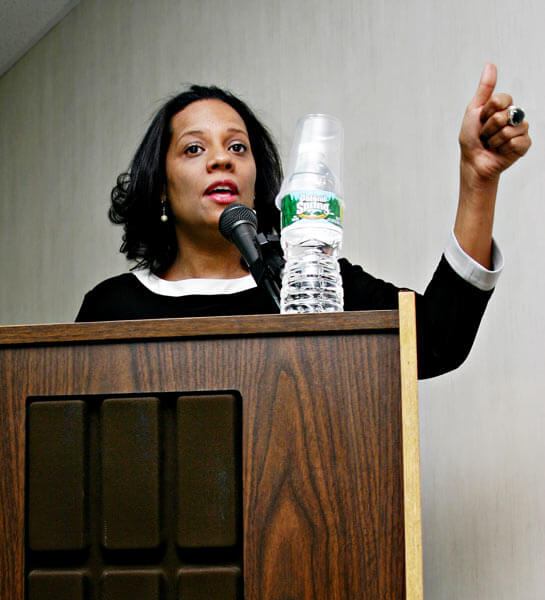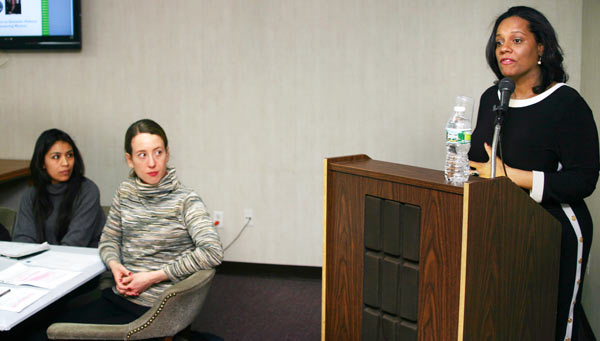By Joe Anuta
Domestic violence complaints have not declined over the last 10 years despite increased enforcement by the NYPD, even as major crime and incarceration rates fell.
That was the message Friday from a group of nonprofits gathered in Long Island City to discuss some innovative ways to tackle the problem that by its nature makes it hard to track and treat, especially in Queens.
The forum was hosted by City Councilwoman Julissa Ferreras (D-East Elmhurst), who helped craft a 2011 Council plan to increase outreach and education about domestic violence.
“We need to take some responsibility as a community,” she said. “We can’t do this alone.”
Statistics from the mayor’s Office to Combat Domestic Violence show that in 2002, there were 16 domestic violence victims killed in Queens. By 2012, with virtually no change in the borough’s population, the office had switched its terminology to chart family-related homicides and still reported 15 such deaths.
Citywide, the number of domestic violence incidents reported to the NYPD increased over the same time period from 222,492 to 263,207 — an increase of 18 percent. Again, the city’s population rose by only 2 percent, and the rates of all major crime categories like murder, rape and robbery decreased.
At the same time, home visits by NYPD officers increased by 79 percent over the same time period, with nearly 70,000 visits in 2012.
These numbers are reflected in what one of Friday’s panelists saw in the field.
Nathaly Rubio-Torio is the executive director of Voces Latinas, a Jackson Heights-based advocacy group focused on HIV and violence prevention.
She and other panelists said language barriers and immigration status often keep victims of domestic violence from speaking out, especially when their familial support structure lives in another country.
Abusers can also hold immigration papers or passports hostage and control all the money in the house in order to silence victims.
But groups like Rubio-Torio’s are thinking outside the box about how to break through some of these barriers.
For example, volunteers from Voces Latinas hit Roosevelt Avenue at 3 a.m. to hand out information about preventing HIV transmission and violence at bars or restaurants, especially where prostitution might be occurring.
“We can’t continue to think about 9 to 5, because that’s not when the community is out,” she said.
The group also does a lot of outreach to men, since according to the mayor’s office, women make the majority of complaints and found that many are suffering from the same isolation as their female counterparts, which could be one source of the problem, she said.
The forum was hosted by Steinway Child and Family Services, a nonprofit that provides social, mental, and housing services to those in need. Pasquale DePetris, chief operating officer at the center, urged the groups to reach men earlier since abusive behavior can be learned at a young age, he said.
Several of the other organizations represented — Violence Intervention Program, Why Do I Exist, Community Prevention Alternative and Immigrant Movement International — also wanted to try and make women more socially and economically independent through a variety of programs.
Reach reporter Joe Anuta by e-mail at januta@cnglocal.com or by phone at 718-260-4566.



































